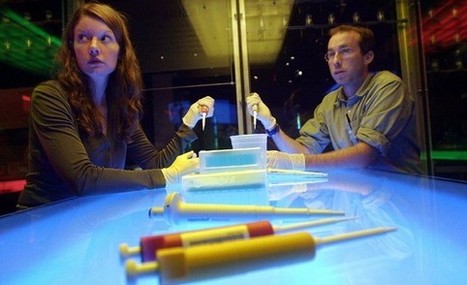University of North Carolina Lineberger Comprehensive Cancer Center researchers have developed a strain of mice that turns on a gene from fireflies to provide a visual indication of aging and tumor growth in mice. The mice light up whenever another mouse gene, p16INK4a (p16) is is activated (in cells undergoing senescence, the p16 gene is switched on).



 Your new post is loading...
Your new post is loading...








